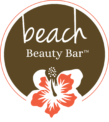Do you know what a healthy skin barrier is? Our skin barrier plays an important role in achieving an even and healthy complexion, but if damaged, it can also be responsible for itchiness, breakouts and unwanted inflammation. Not good. Over exfoliating and drying out the skin is not it. We see this all of the time. There’s one thing most of if not all of our new clients have & that’s super dry skin.
Dry skin does not equal clear skin. Let me say that again. Dry skin does not equal clear skin.
The hashtag #skinbarrier is suddenly everywhere. If you can believe it, it has over three billion views and has taken over the TikTok beauty pages.
But what is the skin barrier? And why is everyone talking about it?
What Is the Skin Barrier?
First, a quick Anatomy 101 lesson: The skin barrier is called the epidermis, which is the outermost layer of cells on the skin. It sits above the dermis.
The dermis houses the blood vessels, sweat glands, nerves, and most importantly, our collagen and elastin. These are the two structural proteins that give our skin firmness and bounce.
The epidermis also works to prevent water loss and keep the skin hydrated. The easiest way to visualize it is by imagining the skin barrier as an actual brick wall.
The bricks in the wall are your cells, while the mortar, is the lipid matrix, through which good things (think active ingredients) can easily pass. The skin barrier has two general roles: Keep the good stuff in — and the bad stuff out.
The lipids within that matrix, such as ceramides and essential fatty acids, need to be at a certain ratio for the skin barrier to function properly. When the skin barrier is healthy, this construction works beautifully to keep hydration in and bacteria, pollutants, and allergens out.
That’s the epitome of healthy skin.
What Is a Damaged Skin Barrier?
When the skin barrier is damaged, that lipid matrix — your mortar — isn’t as sturdy as it should be, leading to cracks and gaps. When that happens it does a poor job keeping irritants or germs out and preventing water loss from the skin. This is how our skin becomes dry and inflamed.
The most common causes of a damaged skin barrier are:
- Genetics
- Age
- Aggressive skincare habits, such as over-washing, over-cleansing, over-exfoliating
- Environmental aggressors, like UV exposure and pollution
On top of that, anything that spurs the release of free radicals — Such as sunlight and pollution, can also impact the integrity of the skin barrier. Free radicals damage skin cells, lipids, collagen, ultimately accelerating the aging process.
How to Repair Your Skin Barrier
First, scope out your skincare habits and assess whether your skin needs a break.
Balance exfoliation with super hydrating moisturizers to maintain a healthy barrier.
Also, choose your cleanser wisely. A creamy formula is generally gentler on the barrier than a foam. We recommend Crème Fresh Cream Cleanser. We love using this cream cleanser for ultra-dry skin trying to heal from acne, as well as for aging skin that just needs more moisture.
When exfoliation is done properly — it delivers radiance, a smooth texture, and more even skin tone. But you can have too much of a good thing and in this case, that brings with it a compromised skin barrier. If your skin looks red or feels uncomfortable after you exfoliate, either slow down the frequency or switch to a gentle formula.
Next, always moisturize. That goes for every skin type — especially those who are oily or acne-prone. A moisturizer should be a key part of your skincare routine and if your skin barrier is highly damaged, you can never use too much moisturizer. Your skin barrier can never max out on moisture. Nutri-Cream reduces inflammation, stimulates production of hyaluronic acid. This moisturizer helps boost hydration in a big way.
The Best Ingredients for Your Skin Barrier
Finally, the best offense is a good defense.
Rather than fixing a damaged moisture barrier, it’s far easier to prevent it from getting impaired in the first place. Sunscreen is an obvious winner here, since UV exposure leads to free radical activity on the skin — which, again, damages the lipids in your skin barrier.
Sun Guard SPF 30 is acne-safe and is appropriate for all skin types. It doesn’t leave the skin looking pale after applying on medium to dark skin tones. It truly is perfection in sun protection! A great daily SPF for those who don’t want any added color or tint.
Ideally, your skincare routine should be filled with products that contain barrier-repairing ceramides and humectants. Topical ceramides mimic your skin’s moisturizing functions to hold onto hydration, while humectants (like hyaluronic acid and glycerin) pull water molecules from the dermis toward the epidermis to keep your skin moisturized.
The Bottom Line
If your skin feels dehydrated and inflamed, you’re likely dealing with a damaged skin barrier. But don’t worry, with a simplified skincare routine (complete with a rich moisturizer) and some time, your skin will be back to normal in a few weeks.
You don’t have to go crazy with an elaborate skincare routine. A goal-directed skincare routine will be effective, simpler, gentler, and cheaper.
Schedule an initial consultation and treatment today, so we can get you on the road to clear glowing healthy skin!
Cheers to clear!
Rene

